MIRECC / CoE
VISN 5 MIRECC - Recovery into Practice: Interventions

Connection Plans | Families and Caregivers |
Ready-Set-Grow |
Social Skills Training | Stigma and Mental Health
Please find below links to interventions sponsored by the VISN 5 MIRECC or created by our investigators and staff. This page will be updated as more interventions become available. We hope that you will find these interventions helpful for Putting Recovery into Practice!
Sign Up for Email Updates
To sign up to receive announcments about VISN 5 MIRECC Interventions and other resources please enter your email below.
Families and Caregivers
Shared-Decision Making for Family Involvement in Treatment
Involvement of family in a Veteran’s mental health treatment can improve family functioning and effectively mobilize the family’s social and emotional resources in support of the Veteran. The SDM-FIT protocol is a tool for VA mental health providers to facilitate collaborative discussion with Veterans regarding family involvement in treatment. Topics discussed include benefits of, concerns about, and preferences for family involvement. The protocol is designed to facilitate a 30-minute conversation between any mental health provider and Veteran receiving mental health treatment.
The Family Matters Group: Manual for Peer Facilitators
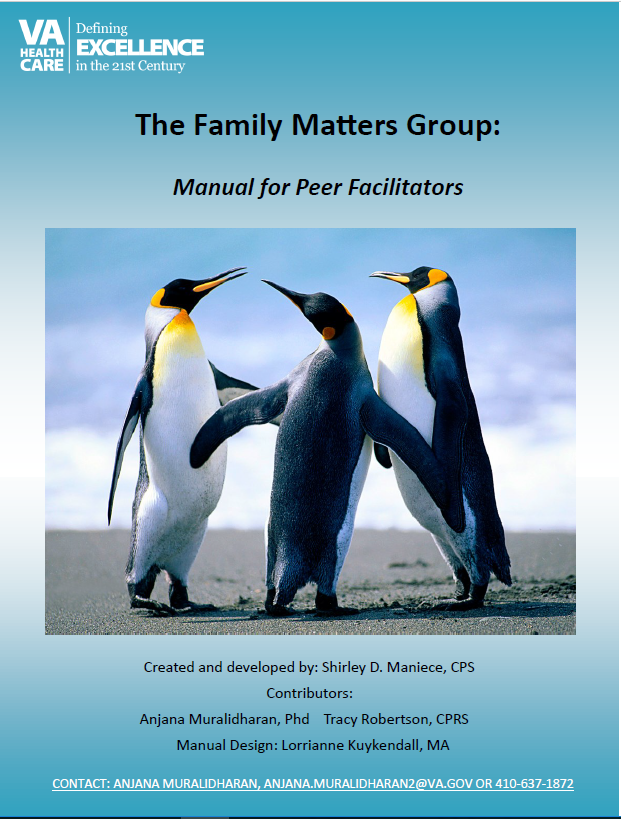
The Family Matters Group, created by Certified Peer Specialist Shirley D. Maniece, is a fun, interactive group that provides a safe, non-judgmental space for individuals with mental health conditions to discuss the potential role of family in the mental health recovery process.
Living Well
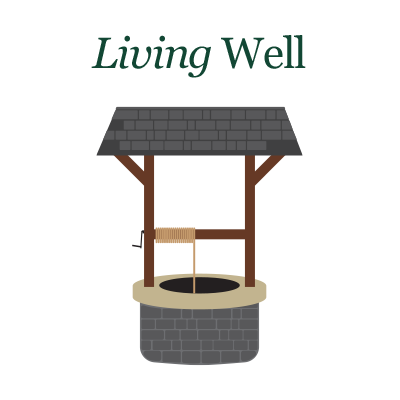
People living with a serious mental illness die younger when compared to the general population due in part to high rates of chronic medical conditions and poor lifestyle behaviors including smoking, alcohol and drug use, physical inactivity and poor diet.
Interventions helping people better self-manage common medical and psychiatric challenges can be helpful. People living with medical and psychiatric conditions can serve as role models in helping others with similar challenges. The VISN 5 MIRECC Director, Dr. Goldberg, and his team developed and tested a 12-session group intervention called Living Well.
Living well was designed to be co- led by a person living with both a medical and psychiatric condition and a clinician. The goal of Living Well is to enhance self-efficacy and motivation through education and skills training in action planning and problem solving. Sessions focus on learning about a range of health-related topics. These include: mental health recovery, healthy eating, physical activity, symptom management, and other subjects. Participants also create weekly action plans and engage in group-based problem solving to reach their lifestyle goals.
Ready-Set-Grow
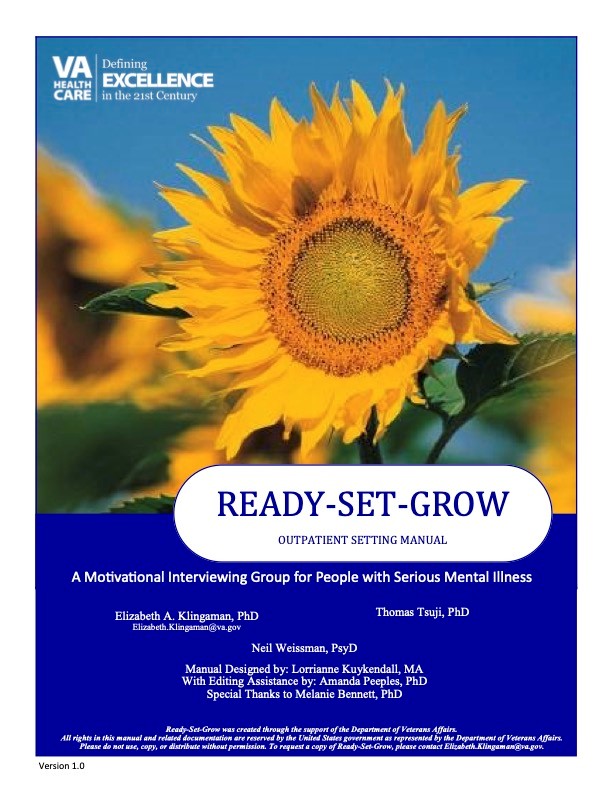
The manual offers an overview for clinicians who are looking for a flexible person-centered approach to fostering motivation within group therapy settings. The manual presents the importance of considering MI techniques when facilitating the recovery process with people living with serious mental illness. There are unique aspects of Ready-Set-Grow compared to other types of psychotherapy groups and individual psychotherapy; these are reviewed with special emphasis on the techniques within the group that capitalize on and synergize the strengths of group members to hear, respond to, and facilitate each other’s growth in keeping with MI principles. Finally, the structure and topics of the group, example dialogues, additional considerations for a variety of clinical environments, as well as troubleshooting common challenges are described in detail.
Ready-Set-Grow Podcast
Drs. Klingaman, Weissman, and Tsuji, co-creators of Ready-Set-Grow, have led the group hundreds of times over the past 10 years. In the podcast linked below, they unpack what makes Ready-Set-Grow powerful, what it looks like in practice, and practical techniques for making it work well with Veterans living with a variety of mental illness or motivational challenges. The manual and information about this group are freely available through the VISN 5 MIRECC. If you wish to consult about how it may apply to your work and those you serve, we would love to speak with you about how we can support you in using Ready-Set-Grow. Please contact Elizabeth.Klingaman@va.gov.
Social Skills Training
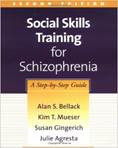
Social Skills Training (SST) is a treatment procedure that has been developed to directly address social problem-solving skills deficits with the goal of enhancing social functioning. SST interventions are tailored to meet the real-life, current-day difficulties that affect the social experiences of each Veteran, but several common core elements are present regardless of which specific skills are being taught. In general, SST is a highly structured educational procedure that employs didactic instruction, breaking skills down into discrete steps, modeling, behavioral rehearsal (role-playing), and social reinforcement.
Stigma and Mental Health
EASE-ing Self Stigma (EASE)

Self-Stigma is the harm caused when people start to define themselves by the stereotypes they are exposed to. It interferes greatly with wellness, recovery and treatment. EASE is a 90 minute program for all staff in practical ways you can help people you serve reduce or avoid the effects of self-stigma.
Ending Self-Stigma (ESS)
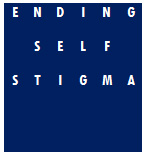
ESS was developed by a team from the VISN 5 MIRECC and the University of Maryland School of Medicine Department of Psychiatry to translate research on reducing the harmful effects of mental illness stigmatization into practical strategies that people can use.



















